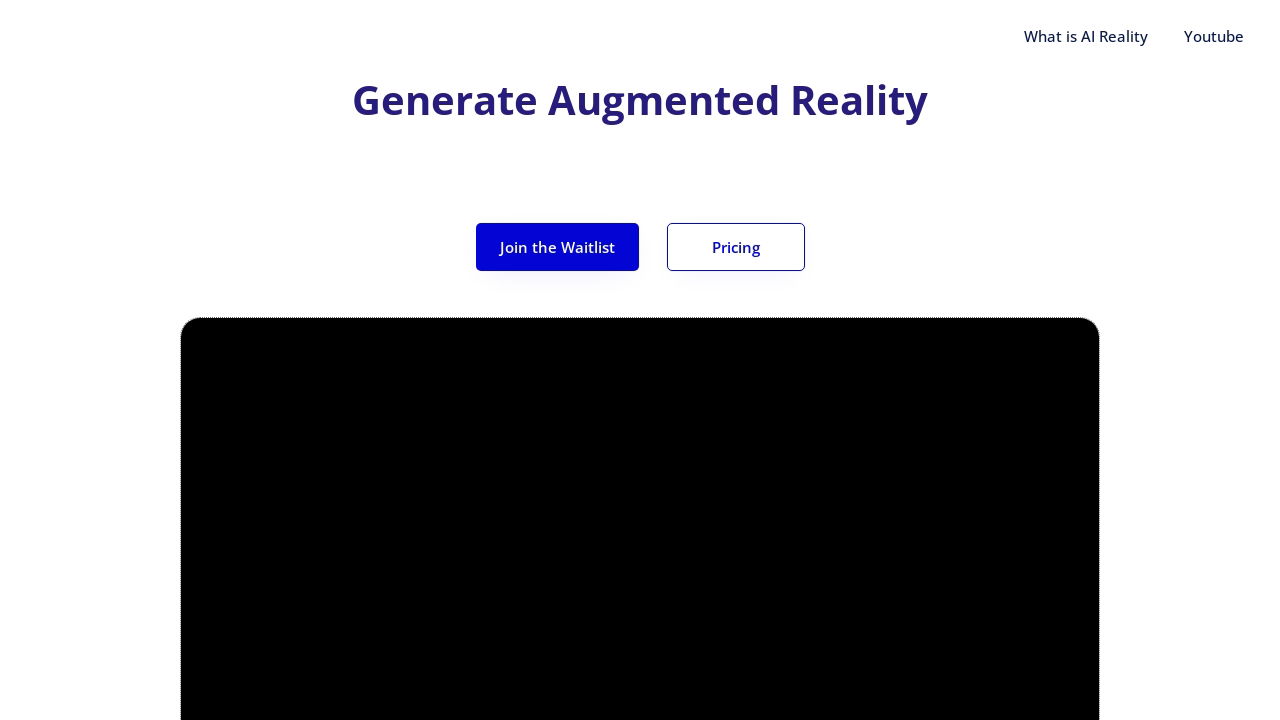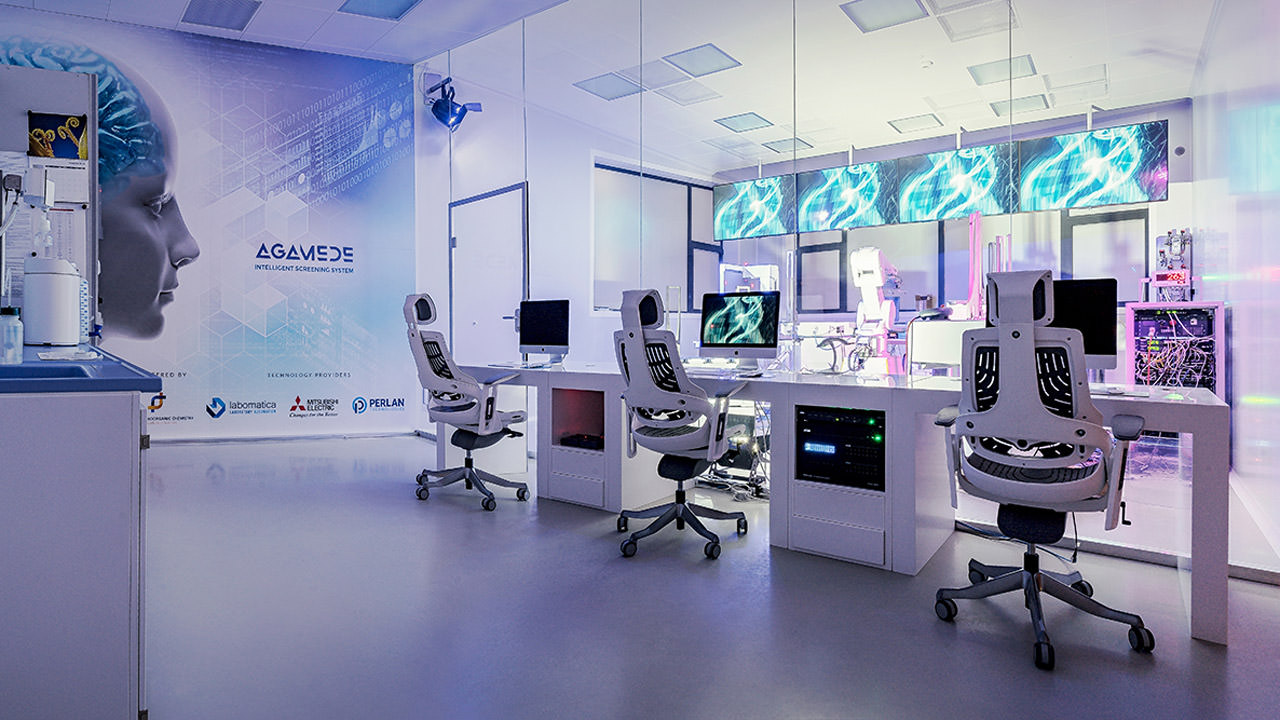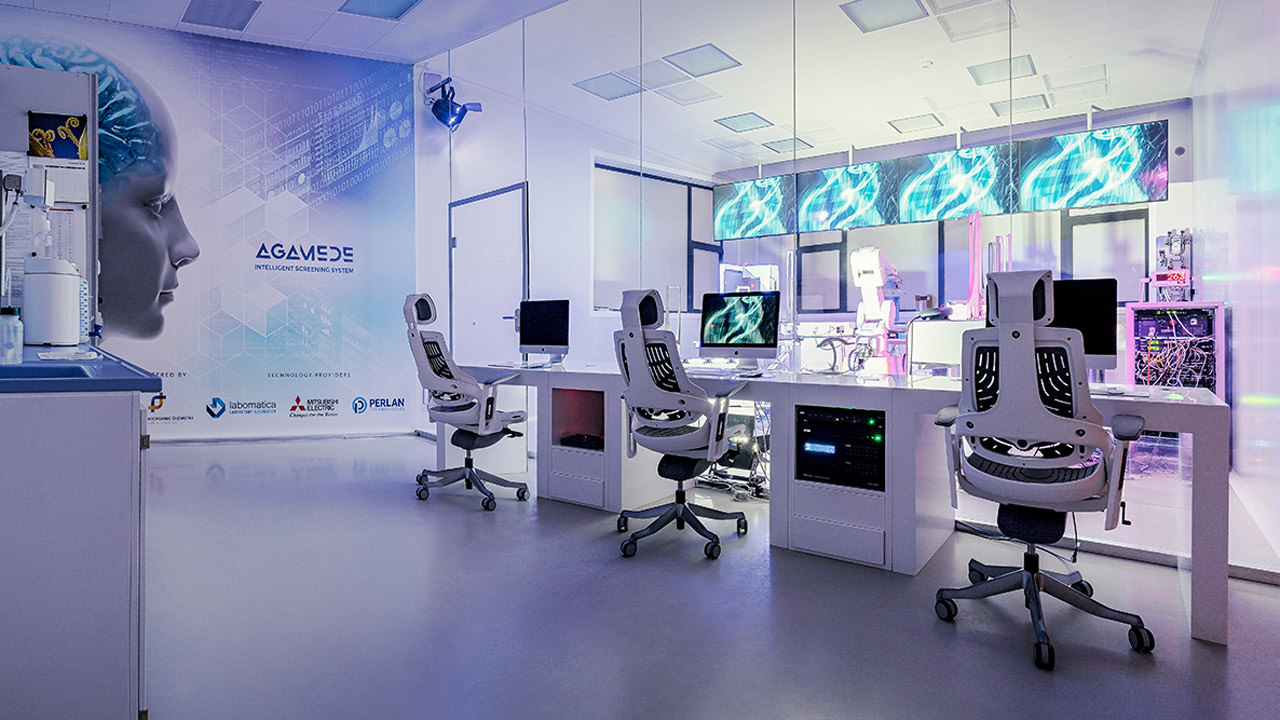Reality AI Lab sets the stage for exploring the incredible potential of artificial intelligence to reshape our world. We’ll delve into the lab’s mission, its core technologies – from advanced simulations to cutting-edge robotics – and the revolutionary applications across healthcare, entertainment, and environmental science. Prepare for a journey into a future where AI isn’t just a tool, but a collaborator in solving some of humanity’s biggest challenges.
Reality AI Lab focuses on cutting-edge AI applications, and understanding the real-world implications is key. To stay updated on how AI intersects with emerging tech, check out the latest developments in drone technology by looking at the daily news, like what’s happening on this site: drone news today. Keeping tabs on drone advancements helps Reality AI Lab anticipate future challenges and opportunities in AI development.
This exploration will cover the ethical considerations inherent in such powerful technology, outlining strategies for responsible development and deployment. We’ll also chart a course for the future, envisioning breakthroughs and collaborations that will define the next chapter in AI innovation. Get ready to discover how Reality AI Lab is poised to redefine what’s possible.
Introduction to Reality AI Lab
The Reality AI Lab is a hypothetical research facility dedicated to pushing the boundaries of artificial intelligence in creating and interacting with realistic virtual and augmented realities. Its mission is to develop cutting-edge AI technologies that enhance human experience across various sectors, while its vision is a future where seamlessly integrated AI-powered realities improve lives globally.
Mission and Vision of Reality AI Lab
The Reality AI Lab’s mission centers around developing innovative AI solutions to improve the realism, interactivity, and accessibility of virtual and augmented realities. This includes creating more immersive experiences, improving human-computer interaction, and broadening the applications of these technologies across diverse fields. The lab’s vision is a future where AI-powered realities are seamlessly integrated into daily life, enhancing productivity, creativity, and overall well-being.
Potential Areas of Research and Development
Research within the Reality AI Lab encompasses several key areas. These include advancements in AI-driven rendering, realistic physics simulation, natural language processing for intuitive interaction, and the development of novel AI algorithms for personalized virtual experiences. The lab also explores ethical considerations and responsible AI development practices within these areas.
Potential Societal Impact of Advancements
Advancements from the Reality AI Lab could revolutionize numerous sectors. Improved medical training simulations, more engaging educational tools, and innovative entertainment experiences are just a few examples. Furthermore, the development of accessible and inclusive VR/AR technologies could bridge geographical and physical limitations, fostering greater global connectivity and collaboration.
Core Technologies of Reality AI Lab

Three core technologies underpin the Reality AI Lab’s research: deep learning for realistic rendering, reinforcement learning for interactive simulations, and natural language processing (NLP) for intuitive human-computer interaction.
Deep Learning for Realistic Rendering
Deep learning algorithms are crucial for generating photorealistic images and environments in virtual and augmented realities. This technology finds applications in gaming, film production, and architectural visualization, allowing for the creation of incredibly detailed and immersive worlds. While deep learning offers stunning realism, it can be computationally expensive and requires large datasets for training.
Reinforcement Learning for Interactive Simulations
Reinforcement learning enables the creation of dynamic and responsive virtual environments. AI agents trained using this method can learn to behave realistically and adapt to user input, making simulations more engaging and effective. Applications include training simulations for surgery, flight, and disaster response, where realistic interactions are critical.
Natural Language Processing for Intuitive Human-Computer Interaction
NLP allows users to interact with virtual and augmented realities using natural language commands. This technology makes VR/AR more accessible to a wider audience and enhances the overall user experience. Applications range from voice-controlled gaming to interactive educational experiences and assistive technologies for individuals with disabilities.
Applications of Reality AI Lab Research
The Reality AI Lab’s research has far-reaching applications across various sectors.
Applications in Healthcare
| Application | Technology Used | Benefits | Challenges |
|---|---|---|---|
| Surgical Simulation Training | Reinforcement Learning, Deep Learning | Improved surgical skills, reduced medical errors, cost-effective training | Creating realistic haptic feedback, ensuring data privacy and security |
| Rehabilitation Therapy | Deep Learning, NLP | Personalized therapy programs, improved patient engagement, objective progress tracking | Developing algorithms that adapt to individual patient needs, addressing potential biases in AI systems |
| Mental Health Treatment | Virtual Reality, NLP | Safe and controlled environment for exposure therapy, personalized treatment plans | Ensuring user safety and well-being, addressing potential ethical concerns related to data privacy |
| Medical Imaging Analysis | Deep Learning | Faster and more accurate diagnosis, improved treatment planning | Ensuring algorithm accuracy and reliability, addressing potential biases in AI systems |
Applications in Entertainment
The applications of Reality AI Lab research in entertainment are vast and varied.
- Creating more realistic and immersive video games
- Developing interactive storytelling experiences
- Designing personalized virtual concerts and events
- Creating realistic avatars for virtual social interactions
Applications in Environmental Science
| Area of Application | Specific Problem | AI Solution | Expected Outcome |
|---|---|---|---|
| Climate Modeling | Predicting the effects of climate change | Deep learning models for analyzing climate data | More accurate climate predictions, improved mitigation strategies |
| Wildlife Conservation | Monitoring endangered species | AI-powered image recognition for identifying and tracking animals | Improved conservation efforts, better understanding of animal behavior |
| Pollution Monitoring | Identifying and tracking pollution sources | AI-powered sensors and data analysis | More effective pollution control measures, improved environmental quality |
Ethical Considerations of Reality AI Lab
The development and use of Reality AI Lab technologies raise several ethical concerns. These must be addressed proactively to ensure responsible innovation.
Potential Ethical Concerns
Potential ethical concerns include bias in AI algorithms, data privacy issues, the potential for misuse of realistic simulations, and the impact of immersive technologies on mental health and well-being. The potential for job displacement due to automation in certain sectors also needs careful consideration.
Measures to Mitigate Ethical Risks
Mitigation strategies include rigorous testing for bias in algorithms, implementing robust data privacy and security measures, establishing clear guidelines for the responsible use of AI-powered realities, and investing in research on the psychological effects of immersive technologies. Transparency and accountability are key in building trust and ensuring ethical development.
Reality AI Lab focuses on pushing the boundaries of AI, and understanding the hardware limitations is key. To get a handle on your system’s processing power, check out your CPU specs using a tool like cpu z , which is super helpful for benchmarking and ensuring your rig can handle the intense computations needed for advanced AI projects within Reality AI Lab.
Role of Regulation in Responsible AI Development
Regulation plays a crucial role in fostering responsible AI development. Clear guidelines and standards are needed to ensure that AI systems are developed and used ethically, promoting fairness, transparency, and accountability. Collaboration between researchers, policymakers, and industry stakeholders is essential in shaping effective regulations.
Future Directions of Reality AI Lab

The future of the Reality AI Lab involves a multi-pronged approach to innovation and collaboration.
Hypothetical Roadmap
The lab’s roadmap includes continued research into core AI technologies, expanding applications into new sectors (e.g., urban planning, manufacturing), and fostering collaborations with external partners. A focus on ethical considerations and responsible AI development will guide all research and development activities.
Potential Breakthrough in the Next 5 Years
A potential breakthrough could be the development of a truly seamless and intuitive interface between the human brain and AI-powered realities. This could involve advancements in brain-computer interfaces and personalized AI algorithms that adapt to individual cognitive styles, leading to incredibly immersive and interactive experiences.
Potential Collaborations and Partnerships, Reality ai lab
The Reality AI Lab should actively pursue collaborations with universities, research institutions, and technology companies to accelerate innovation and ensure the responsible development and deployment of its technologies. Partnerships with healthcare providers, educational institutions, and environmental organizations will be particularly valuable.
Illustrative Examples of Reality AI Lab Projects
Several hypothetical projects illustrate the potential of Reality AI Lab research.
Project: Enhancing Virtual Reality Experiences Using AI

This project focuses on using deep learning to generate photorealistic textures and environments in virtual reality, coupled with reinforcement learning to create dynamic and responsive virtual characters. The technology involves training deep learning models on massive datasets of real-world images and videos, and using reinforcement learning to train virtual characters to behave realistically and interact with users in meaningful ways.
The expected outcome is a significant improvement in the realism and immersiveness of VR experiences, making them more engaging and useful across various applications.
Reality AI Lab focuses on developing cutting-edge AI solutions for various applications. One exciting area involves integrating AI with drone technology, and to get started with high-quality drones, you might want to check out the selection available from dji drone canada. These drones provide the robust hardware needed to gather the data Reality AI Lab’s algorithms can then process and analyze, ultimately creating even more sophisticated AI systems.
Project: Creating More Realistic and Immersive Simulations for Training Purposes
This project aims to develop highly realistic and immersive simulations for training purposes across various industries. The project involves:
- Phase 1: Data Acquisition and Preprocessing – Gathering and preparing real-world data for training AI models.
- Phase 2: AI Model Development – Training deep learning and reinforcement learning models to create realistic simulations.
- Phase 3: Simulation Development – Building interactive simulations incorporating the trained AI models.
- Phase 4: Evaluation and Refinement – Testing and refining the simulations based on user feedback.
The expected results include more effective and engaging training programs, leading to improved skills and reduced training costs.
Project: AI-Enhanced Virtual Environment for Education
| Aspect | Traditional Methods | AI-Enhanced Approach |
|---|---|---|
| Content Delivery | Static textbooks, lectures | Interactive simulations, personalized learning paths |
| Student Engagement | Limited interaction, passive learning | Dynamic environments, gamified learning experiences |
| Assessment | Standardized tests | Adaptive assessments, real-time feedback |
| Accessibility | Limited accessibility for students with disabilities | Personalized learning experiences, adaptive interfaces |
Conclusive Thoughts
Reality AI Lab represents a bold leap forward in harnessing the power of AI for the betterment of society. By thoughtfully addressing ethical concerns and fostering collaboration, the lab paves the way for transformative advancements across multiple sectors. The future envisioned by Reality AI Lab is one of innovation, responsible progress, and a deeper understanding of the world around us – a future we’re excited to help build.
Questions and Answers
What makes Reality AI Lab unique?
Its focus on responsible AI development, coupled with its interdisciplinary approach and commitment to real-world applications, sets it apart.
Who funds Reality AI Lab?
Funding sources could include government grants, private investment, and corporate partnerships.
What kind of jobs are available at Reality AI Lab?
Opportunities would span AI research, software engineering, data science, ethics, and project management.
How can I get involved with Reality AI Lab?
Look for internship opportunities, research collaborations, or job postings on their website (once established).
